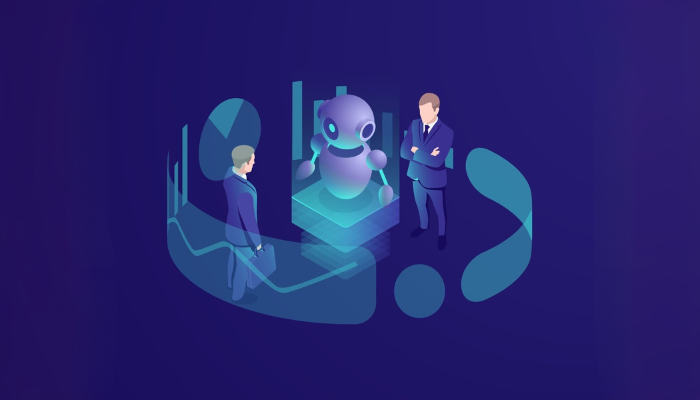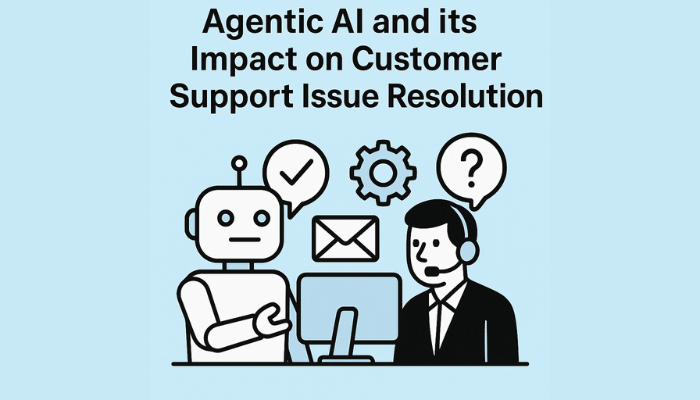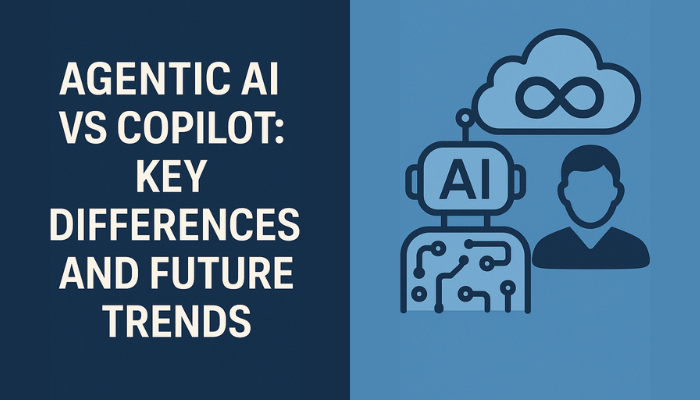What if the next big decision in your business wasn’t made by you but by an intelligent system that learns, adapts, and delivers results faster than any human team? That’s the power of AI agents, and they’re no longer just a futuristic concept. In 2025, the AI agent market is expected to soar to $47.1 billion by 2030, growing at an incredible rate of 44.8% each year.
This growth shows how more industries are turning to AI to improve customer experience, boost efficiency, and tackle big challenges in areas like healthcare, e-commerce, and finance.
In this blog, you’ll see what an AI agent is in real-life examples and why they’re becoming such a game-changer. Let’s explore the tech that’s shaping the future!
What is an AI Agent?
AI agents are rapidly transforming industries, and their influence is becoming more prominent every day. As you explore their capabilities, you’ll begin to understand how they function and the ways in which they impact both your personal and professional life.
Simply put, AI agents are systems designed to autonomously carry out tasks, process information, and make decisions based on data, much like a human agent, but powered by advanced algorithms.
Their role is not just limited to automating repetitive tasks; they can also adapt, learn, and improve over time. Whether you’re working in healthcare, retail, or even in marketing, AI agents are already making a difference, offering smarter, faster, and more efficient ways to tackle challenges. But how exactly do these agents work, and why are they gaining so much attention?
Let’s break down the essential characteristics and capabilities of AI agents so you can fully understand their potential in real-life applications.
What Are the Different Types of AI Agents?
AI agents has many various forms, each designed to solve different types of problems and perform distinct tasks. These types will give you insight into how AI agents function and adapt in diverse environments. Here’s a closer look at the key types of AI agents:
- Simple Reflex Agents
Simple reflex agents are the most basic type of AI agent. They make decisions based on the current situation or immediate inputs, using a predefined set of rules. While these agents respond quickly and efficiently, they don’t have the capability to consider past experiences or learn from them.
Think of them as reactive systems that perform tasks based solely on current conditions, like a thermostat adjusting the temperature.
- Model-Based Reflex Agents
When compared to simple reflex agents, model-based reflex agents have memory. They maintain an internal model of the world, which helps them understand the current state and adjust their actions accordingly. This enables them to deal with more complex situations by considering both present and past information.
For example, a robot vacuum might remember areas it has already cleaned and adjust its path to ensure it doesn’t miss any spots.
- Utility-Based Agents
Utility-based agents aim to maximize a certain “utility” or value by evaluating all possible actions and choosing the one that provides the greatest benefit. These agents are often used in environments where optimal decision-making is crucial.
In gaming, for instance, AI agents might calculate the potential outcome of various strategies and select the one that maximizes their chances of winning.
- Goal-Based Agents
Goal-based agents are designed to pursue specific goals or objectives. They evaluate the current situation, set goals, and plan the steps needed to reach them. These agents can adapt their strategies based on changes in their environment.
A GPS navigation system is a prime example of a goal-based agent, where the goal is to reach a destination, and the system constantly adjusts the route based on real-time conditions.
- Learning Agents
Learning agents are the most advanced type of AI agents. They improve their performance from past experiences and adapt their actions based on new data. These agents often use machine learning algorithms to refine their decision-making abilities.
Self-driving cars, for instance, learn from their environment, improving their ability to navigate safely through various scenarios as they gather more experience.
To wrap it up, understanding the different types of AI agents helps you appreciate their versatility and the impact they can have across industries.
Need Actionable Data Insights for Your Business? Transform your data into valuable insights for better decision-making with our advanced analytics services. Learn more about how we can help you make informed business choices.
9 AI Agent Stats That Prove the Future Is Already Here
AI agents are transforming industries by enhancing productivity, enabling innovation, and improving customer experiences. Here are 10 notable statistics that underscore their growing impact.
- Productivity and Efficiency: 85% of organizations say AI-powered automation has increased their productivity and efficiency.
- Innovation Enablement: 58% of companies utilize AI agents to create new products and services.
- Data Monetization: Over 53% of organizations are benefiting from data monetization through AI tools.
- Enhanced Personalization: 47% of respondents highlight improved customer engagement through AI-driven personalization.
- Fraud Detection: 32% of organizations have experienced fraud, corruption, or economic crimes in the past 24 months, highlighting the growing need for AI in fraud detection.
- Customer Service Automation: Natural Language Processing (NLP)-enabled AI agents autonomously resolve up to 70% of customer queries.
- Cost Reduction: Companies using AI agents with NLP capabilities have seen a 30% decrease in customer service costs.
Struggling to Integrate AI Agents Seamlessly into Your Business? Let us help you develop custom AI agents that integrate smoothly with your existing systems. Contact Codewave today for a consultation!
Real-World Examples of AI Agents
Let’s take a look at some of the most notable examples of AI agents in action:
Virtual Assistants: Siri, Alexa, and Google Assistant
Virtual assistants have become indispensable in daily life, helping your customers manage tasks such as setting reminders, sending messages, controlling smart home devices, and even answering questions. These AI agents process natural language, making it easier for your customers to interact with technology through voice commands.
They learn from habits over time, becoming more efficient and personalized, offering hands-free convenience whenever needed.
Healthcare AI Agents
AI agents in healthcare are transforming how patients are monitored and treated. These agents analyze patient data in real-time, including vital signs, medical history, and diagnostic tests, helping healthcare providers make timely and accurate decisions. They can predict potential health risks, recommend treatment options, and even suggest preventive measures.
For example, AI is being used in managing chronic conditions, analyzing medical imaging, and personalizing treatment plans, leading to better patient outcomes.
Fraud Detection Agents
AI agents in the finance industry are crucial in identifying and preventing fraud. By monitoring transaction data in real-time, these agents can spot irregular patterns or behaviors that suggest fraudulent activity, such as unusual spending patterns or unauthorized access attempts.
They use machine learning algorithms to enhance their detection abilities, notifying both consumers and financial institutions of suspicious transactions, which helps minimize the impact of fraud and financial losses.
Autonomous Vehicles
Autonomous vehicles rely on AI agents to make split-second decisions while navigating roads, interpreting traffic signs, and responding to environmental factors. These AI agents process data from various sensors and cameras to map out the vehicle’s surroundings and plan a safe route.
Whether it’s detecting pedestrians, adjusting speed, or ensuring safe lane changes, these intelligent agents are designed to reduce human error, enhancing road safety and enabling the future of self-driving technology.
Customer Support AI Agents
AI agents have transformed customer service by offering personalized and instant support. Chatbots, virtual agents, and automated phone systems can handle numerous customer inquiries, from answering FAQs to solving technical issues. These agents use natural language processing (NLP) to understand and respond to customer concerns effectively.
AI-powered customer support offers round-the-clock assistance, enhancing response times, reducing wait times, and boosting the overall customer experience, leading to increased satisfaction and loyalty.
Sales Enablement and Marketing Automation
These agents monitor how your customers engage with your brand, whether through clicks, page visits, emails, or purchase history. Based on this behavior, they can segment users, create personalized offers, schedule automated follow-ups, and generate content or subject lines that resonate.
If you’re in B2B or e-commerce, they can even qualify leads by scoring their readiness to buy and route them to the right sales reps automatically, reducing time spent on unqualified prospects.
E-Commerce Experience Enhancement
AI agents enhance your online retail operations by personalizing customer journeys. They recommend products based on user behavior, streamline checkout experiences, and manage returns seamlessly. If a customer abandons a cart, the agent can trigger a reminder or offer an incentive. These systems also handle delivery updates and provide instant customer support—driving higher conversion rates, reducing churn, and increasing lifetime value.
Retail Analytics and Fashion Recommendations
In retail, AI agents enable hyper-personalized shopping experiences. They analyze buying behavior, demographic data, seasonal demand, and even social trends to tailor product recommendations.
If your customer is browsing online or using a smart fitting room, the AI can suggest outfit combinations, match accessories, or offer alternatives based on budget and fit. This boosts engagement and increases average order value.
Legal Document Analysis and Compliance Monitoring
For legal teams, AI agents streamline document analysis and ensure compliance. They scan contracts, legal documents, and case files to flag inconsistencies, highlight risks, and ensure alignment with regulatory standards.
You can automate repetitive legal processes like drafting NDAs or reviewing leases, freeing your team to focus on complex, strategic matters and minimizing legal exposure.
Logistics, Inventory, & Supply Chain Management
AI agents are crucial in streamlining logistics and supply chain operations. They anticipate demand trends, automate inventory management, and enhance delivery route efficiency through real-time data analysis.
You can gain actionable insights into supplier reliability, seasonal shifts, and stock turnover. When disruptions arise, AI recommends immediate rerouting or alternative sourcing strategies, helping you minimize downtime and maintain cost control.
EdTech Learning Assistants and Adaptive Tutors
In education, AI agents track how students interact with material and adjust content difficulty or format based on their performance. They identify weak spots, provide instant feedback, and encourage mastery-based learning by repeating concepts until you understand them.
For educators, these agents also generate performance reports, suggest remediation strategies, and flag at-risk students before they fall behind.
Real Estate Search and Investment Decision Agents
As a real estate service provider, using AI agents allows you to deliver faster, smarter, and more personalized experiences to your clients. These systems analyze buyer or investor preferences, such as budget, location, lifestyle needs, or investment goals, and automatically filter the most relevant listings. They also evaluate factors such as future value appreciation, neighborhood trends, and potential red flags in property data, helping your clients make more informed decisions.
For your investor clientele, AI agents provide in-depth insights into rental yields, infrastructure developments, market demand, and economic indicators, enabling you to present high-return opportunities with confidence. You reduce time spent on manual research and increase client trust through data-backed recommendations.
Algorithmic Trading and Financial Intelligence
AI agents are transforming algorithmic trading by executing high volumes of trades at lightning speed. Leveraging real-time market data and machine learning models, they continually refine their trading strategies to enhance accuracy and profitability.
For high-frequency trading firms, AI delivers a competitive edge by enabling faster, data-driven decisions. When combined with technologies like blockchain and quantum computing, AI unlocks even more sophisticated and secure trading capabilities.
By integrating AI agents, financial institutions are enhancing operational efficiency, precision, and risk management.
These examples highlight just how integrated AI agents have become in real-world applications, streamlining tasks, improving efficiency, and enhancing decision-making across various industries. As AI technology advances, we can anticipate even more groundbreaking applications that will transform the future of multiple industries.
Innovative AI Agent Implementations
Let’s explore some of the innovative AI agent implementations that are driving change across different industries:
Recommendation Engines
AI agents power the recommendation systems on platforms like Netflix and Spotify. These agents analyze your viewing or listening habits, preferences, and behavior to suggest content tailored to your interests.
By continuously learning from your interactions, these recommendation engines enhance the relevance of their suggestions, enabling you to discover new content that perfectly aligns with your preferences.
Dynamic Pricing Systems
AI agents drive dynamic pricing models used by companies like Uber and airlines. They adjust prices in real-time based on demand, supply, location, and even weather conditions. Pricing can surge during high-demand periods or in specific areas, all thanks to the real-time data analysis done by these AI agents.
They help optimize prices for businesses while ensuring fair and competitive pricing for customers.
Content Moderation
Many Social media platforms such as Facebook, Twitter, and YouTube rely on AI agents to automatically detect and remove harmful content. AI uses natural language processing (NLP) and image recognition to identify inappropriate posts, images, and videos, flagging them for review.
This automated moderation ensures a safer and more enjoyable environment for users while allowing platforms to respond quickly to violations.
Recruiting Assistance
AI agents are transforming the hiring process by automating interview scheduling, screening resumes, and conducting initial assessments. Recruitment platforms like LinkedIn use AI to help identify top candidates based on qualifications and experience.
AI assists recruiters by handling time-consuming tasks, allowing them to focus on higher-level decisions and improving overall efficiency in the hiring process.
Stock Trading Bots
Stock trading bots, powered by AI, are reshaping how investors approach the stock market. These bots analyze massive amounts of financial data, market trends, and historical performance to execute trades in real-time.
By making data-driven decisions and predicting stock movements, AI agents help optimize investment strategies while reducing risks and minimizing human emotion in decision-making.
These innovative AI agent implementations showcase how AI continues to improve efficiency, personalization, and scalability across industries. With constant advancements in technology, expect even more creative uses for AI that will redefine industries and enhance everyday experiences for businesses and consumers alike.
Also read: AI Tools for Small Businesses: Applications and Efficiency
Emerging Trends in AI Agents
AI agents are evolving at a rapid pace, and new trends are emerging with the promise of shaping the future of technology and industries. Here are some of the most exciting trends to keep an eye on:
- Integration with Advanced Technologies
The integration of AI agents with cutting-edge technologies like the Internet of Things (IoT), 5G, and blockchain is revolutionizing how devices and systems communicate. AI agents are becoming more intelligent by leveraging data from interconnected devices, enabling smarter decision-making and enhanced automation.
As these technologies continue to evolve, AI agents will play an even important part in enabling seamless, real-time communication between devices and systems across industries.
- Broader Applications of Large Language Models
Large language models (LLMs) like OpenAI’s GPT-3 are becoming a central part of AI agent development. These models enable AI to better understand and generate human-like language, powering applications like chatbots, customer support agents, and content generation tools.
The broader application of LLMs is helping AI agents offer more nuanced and accurate responses, bridging the gap between machines and human-like communication. Expect even more industries to leverage these models for enhanced customer engagement, productivity, and personalized experiences.
- Ethical AI and Responsible Deployment
As AI agents become more embedded in our daily lives, there is increasing focus on ensuring their ethical use. Concerns about bias, privacy, and transparency in AI decision-making are driving the need for responsible AI development. Researchers, regulators, and businesses are working together to create frameworks that ensure AI is used ethically, minimizing harm while maximizing benefits.
The future of AI agents will require a careful balance of innovation and responsibility to ensure that these technologies serve the greater good.
- Growth of Generative AI in Creative Industries
Generative AI, that can create new content such as images, music, and even code, is gaining traction in creative industries. AI agents are now being used by artists, musicians, and writers to co-create or inspire new works, opening up new possibilities for artistic expression.
From generating realistic artwork to composing original music, generative AI is transforming how creative professionals work, offering them powerful tools to push the boundaries of their creativity.
As you explore these innovations, you’ll see how AI agents are becoming essential to solving complex problems and driving new possibilities for the future.
AI agents are smart, but not without limits
While AI agents offer incredible opportunities, there are several challenges and considerations you’ll need to keep in mind. These hurdles can affect the effectiveness and ethical implementation of AI across industries.
Here’s how you can overcome the hurdles:
- Data Privacy and Security: AI agents process large amounts of sensitive data. Therefore, when you’re dealing with sensitive data, make sure to use strong encryption, restrict access, and stay compliant with regulations like GDPR or HIPAA.
Regular security checks and anonymizing personal information will go a long way in keeping your data safe.
- Ensuring Accuracy and Reducing Bias: To avoid biased results, keep training your AI agents on diverse and up-to-date datasets. Use fairness-check tools and involve people from different backgrounds to review the AI’s decisions. This helps you build systems that are not just smart, but also fair.
- Balancing Automation with Human Oversight: While automation improves efficiency, human judgment is still necessary to oversee AI’s actions and ensure ethical practices. Set up clear checkpoints where you or your team can step in, review decisions, and make sure everything aligns with your goals and values.
- Developing Scalable and Adaptable Systems: AI agents must be able to scale and adapt to new challenges as industries grow and change. You can build it in a modular way so it’s easy to update, scale, or connect with other tools as your industry evolves.
Additionally, cloud infrastructure and real-time feedback loops can help you stay ahead of the curve.
Worried About Automation? Streamline your processes and mitigate manual tasks with AI-powered automation. Explore our automation services and improve your efficiency today.
What Role Can Codewave Play in Your AI Agent Strategy?
Codewave is a digital transformation company that specializes in building intelligent, user-centric solutions. With hands-on experience in AI, machine learning, and human-centered design, Codewave helps you conceptualize, build, and scale AI agent systems tailored to your business needs.
Whether you’re looking to automate operations, enhance customer experiences, or unlock data-driven insights, Codewave provides end-to-end support , from strategy and design to implementation and optimization.
How Codewave Can Assist You with AI Agents
At Codewave, we take a holistic approach to AI implementation, combining engineering, design, and strategy to build agents that truly work for you.
Here’s how we support you at every stage of your AI journey:
Custom Agentic AI Development
We build AI agents to meet your business needs, from improving customer service to automating inventory management and personalizing shopping experiences. We use TensorFlow to build deep learning models, PyTorch for flexible neural networks, and Scikit-learn for machine learning algorithms, ensuring that the agents deliver results and continuously improve.
Seamless Integration with Existing Systems
We ensure that your AI system integrates smoothly with your CRM, ERP, and other platforms. Using REST APIs and GraphQL, we connect the AI system with your existing tools, and we automate workflows with Zapier to eliminate manual tasks and improve efficiency.
AI Strategy & Use Case Consulting
We help you identify where AI agents can create the most value in your business. From use case mapping to tech stack recommendations, we guide you through planning and prioritizing AI implementation for maximum impact.
Scalable Cloud Architecture
We design and deploy your AI agents using scalable cloud infrastructure—leveraging AWS, Azure, or Google Cloud to ensure your solutions are secure, cost-effective, and easy to scale as your needs grow.
Intelligent Process Automation
We deploy AI agents that automate time-consuming tasks—like invoice validation, lead scoring, or customer onboarding. Using tools like UiPath and Microsoft Power Automate, we reduce manual effort while increasing speed and accuracy.
Conversational AI and Chatbots
We develop AI-powered chatbots and voice assistants that engage users in real-time. Using Dialogflow, Rasa, and Amazon Lex, we create conversational agents that handle customer queries, book appointments, and even provide product recommendations.
Data Engineering & Real-Time Analytics
We help you build a strong data foundation for your AI agents. From data lakes to real-time processing with Apache Kafka and Spark, we structure your data pipelines to fuel smarter decisions and better performance.
Human-Centered AI Design
We combine AI development with UX design to create intuitive, human-friendly interactions. Using Figma and Adobe XD, our design-first approach ensures your AI agents feel natural and helpful—not robotic.
Predictive & Prescriptive Analytics
We build AI agents that do more than analyze—they anticipate. With predictive models built using XGBoost and LightGBM, your agents can forecast trends, identify risks, and suggest actionable insights.
Edge AI & IoT Integration
We design AI agents that operate at the edge—processing data from IoT devices locally for faster decision-making. Using NVIDIA Jetson and AWS IoT, we enable use cases like smart warehousing, predictive maintenance, and real-time monitoring.
Continuous Optimization & Support
After deployment, we stay with you. We monitor performance, retrain models, and optimize workflows so your AI agents keep evolving with your business. With MLOps tools like MLflow and Kubeflow, we make continuous improvement seamless.
In the end, AI agents are transforming the way businesses operate, providing powerful solutions to improve efficiency, enhance customer experiences, and drive innovation. With applications spanning multiple industries, their potential to transform workflows is limitless. Stay ahead of the curve and lead in your industry by leveraging the right AI tools for innovation and growth.
Is Your Business Ready for the Future? Get ahead with custom AI solutions that drive scalability, efficiency, and data-driven decision-making. Get in touch with our experts to start building a smarter business.
Codewave is a UX first design thinking & digital transformation services company, designing & engineering innovative mobile apps, cloud, & edge solutions.







